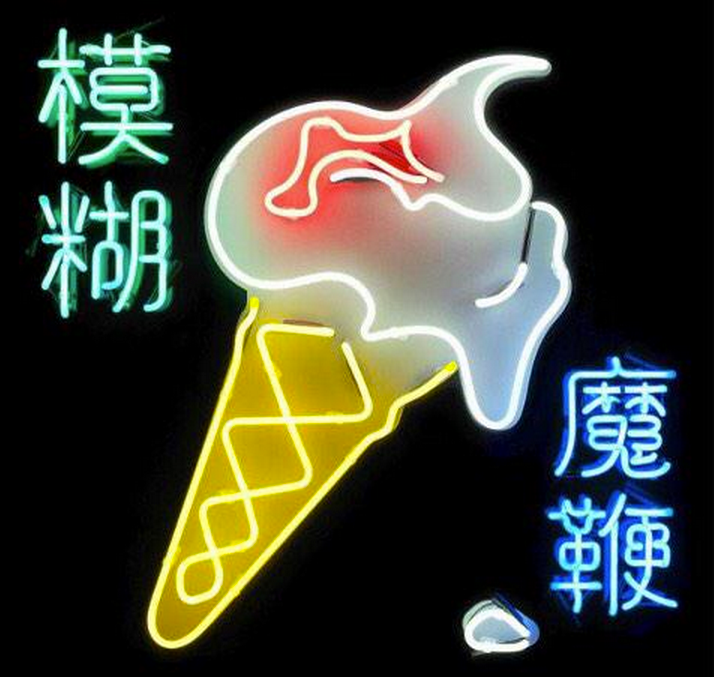Blur: The Magic Whip
May 19, 2015
Bobcat Beats: The Magic Whip by Blur
Highlights: Go Out, New World Towers, Thought I Was a Spaceman, Ghost Ship
Rating: 8.5/10
Blur has long been one of my favorite bands. Since 1989, Blur have been genre jumping, all the way from dance-y shoegaze to art school pop to Pavement-inspired indie rock to rhythm based electronica. Within those musical phases, Blur peaked in the mid-nineties with Cool Britannia, a revival of the 1960s British Invasion in music, fashion and sports. Their pop-styled alt rock was constantly at odds with the Beatles-copying Beatles-inspired Oasis, but Blur has always been a fan favorite. With their new release, The Magic Whip, Blur harks back to the Britpop album trilogy while giving it a modern twist with an unusual setting: Hong Kong.
“Lonesome Street” begins as an apt opener as lead singer Damon Albarn coos to the listener about “what [they’ve] got mass produced in somewhere hot” with the familiar jangle-pop guitar of Graham Coxon. “Lonesome Street” almost serves as a Britpop Digest version of one of the main themes seen in Albarn’s last solo record, Everyday Robots: loneliness. But, of course, it gets Ye Olde Blur Treatment with poppy rhythms and shouty vocalizations. But why the next track, we get the message that this isn’t any old pop album. “New World Towers,” by far one of the standout tracks of this album, places the listener in a landscape of melancholia. Slow piano fades into beautifully laid out synths while drums echo references to a 61-floor skyscraper in Shanghai. And just somehow, this song becomes a vague reflection on love and time.
The Magic Whip’s leading single, “Go Out,” has personally been on replay for me when I first heard it and it still proves the same as it comes as the third track on this album. “Go Out” serves as a splendid amalgamation of the sonic soundscapes seen in albums Modern Life is Rubbish, 13, and Think Tank with lyrics about “dancing with myself” and “a greedy go-getter in the sky bar.” Mixed with jumpy riffs and background vocalization, “Go Out” is a fun pop song with a singable chorus (Seriously. Listen to it. You will extend every “oh” sound you hear at least 2 syllables from the week after).
“Ice Cream Man” interpolates more bubbly synth noises with acoustic guitar, in which the vocals hark to yet another of Albarn’s other music projects, Gorillaz. “Ice Cream Man” serves as a stark opponent to the song that succeeds it, “Thought I Was a Spaceman.” “Thought I Was a Spaceman” sees Albarn dealing with his inner demons as the listener is taken on a trip from “a carpark” to “the empty harbor” to Hyde Park, in London. These lyrics are followed by spooky house beats and deep bass and lead into a crescendo of tinkling synthesizers and electric guitars with Graham Coxon taking the microphone and crooning the chorus.
The sixth track, “I Broadcast,” starts off with fun 90s alt rock riffs that hark back to Blur’s attempt at grunge, “Song 2.” “I Broadcast” comes off a bit dadrock-y, but is still enjoyable. Buzzy MIDI beats and echoed lyrics accompany this very short song that leads into the dramatically moving “My Terracotta Heart.” To be completely honest, “My Terracotta Heart” serves as filler before “There Are Too Many of Us.” “There Are Too Many of Us” is an ominous tune that discusses overpopulation and the quality of life in the modern world, a message that seems relevant right now. One of my favorite songs on the album, Albarn warns us about “living in tiny houses of our immortality” with marching band drums and guitars.
The ninth track, “Ghost Ship”, takes us back to the setting of maritime China leading in with Parklife-era brass section and a cymbal track. In this song, he sings of “drowning [his] heart, in Hong Kong”. No song sung underwater has sounded this good. Arguably the grooviest song on the album, “Ghost Ship” also serves as one of the few songs on The Magic Whip. Accompanied by ringing tambourine and the familiar sounds of Blur-style bass, the lyricism of “Ghost Ship” is reminiscent of songs by Belle and Sebastian and the like while the musical stylings echo those of past Motown legends.
The following track, “Pyongyang”, serves as a story about Blur leading man Damon Albarn’s trip to North Korea. In past interviews, he has recalled the surrealism and the magical feeling of being in Pyongyang. And that is perfectly captured in this song, where moody, plucked guitar and background words in Korean go hand in hand with the narrative of a mausoleum (where the past leaders of North Korea, Kim Jong Il and Kim Il Sung are buried), cherry trees and a private island. That gloomy feeling of “Pyongyang” is quickly contrasted by the sunny sounds of “Ong Ong.” This song is pure unserious fun that is unwarranted after the past four or five songs. With a majority of the lyrics in “Ong Ong” being oohs and las, it’s hard to think a song on this album could get even more fun until it leads into a bridge of claps and picked piano notes. While “Ong Ong” would have served as a perfect closer to The Magic Whip, Blur finishes off country inspired “Mirrorball.” But this isn’t any Florida Georgia Line cover: the dragging acoustic guitar and percussion sounds like the soundtrack to a vintage Western as Albarn urges the listener to “hold close to [him].” Albeit forgettable in comparison to other tracks, “Mirrorball” ties up the knots left over from the wild weaving of different sound backdrops by leaving us with simplicity.
The Magic Whip overall might be one of Blur’s most mature output. After the mid-nineties feud they had with Oasis, after the exit of one of their most important members, Graham Coxon and after starting families, having children and a great many solo albums, Blur shows that they’ve still got it in them, just in a more grown-up way. And while they have changed, The Magic Whip brings back the spunk and wit needed in pop music.


